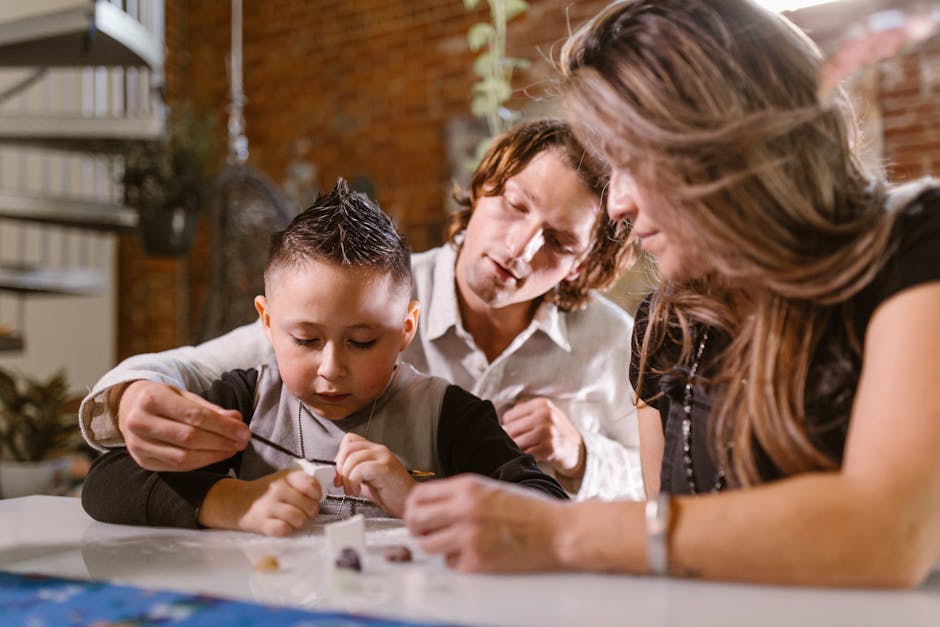Family playtime isn’t just about having fun; it’s a powerful way to strengthen bonds and nurture well-being. I’ve noticed that when families come together for simple activities, the laughter and connection create a ripple effect on everyone’s emotional and physical health. It’s incredible how something as simple as a game night or a backyard soccer match can make such a difference.
Spending quality time together helps reduce stress, improve communication, and even encourage healthier habits. Whether it’s chasing each other around the park or building a puzzle at the kitchen table, these moments foster trust and joy. It’s not just about the activity—it’s about being present with one another.
The Importance Of Family Playtime
Family playtime strengthens bonds and nurtures a sense of belonging. Through shared experiences, each family member feels valued and connected, encouraging trust and mutual respect. Activities as simple as board games or going for a walk create opportunities for open communication and meaningful interactions.
Engaging in family playtime fosters emotional resilience. Participating in group activities helps children and adults alike manage stress, express emotions, and develop empathy. These moments improve emotional intelligence, allowing everyone to better navigate relationships and challenges in daily life.
Physical wellness benefits also come with family playtime. Active pursuits, like playing sports or hiking, promote fitness and healthy habits. These activities increase physical activity, reduce sedentary behavior, and encourage better energy levels, contributing to overall health.
Consistent family playtime builds lifelong habits of connection and well-being. Children who grow up with regular family interactions are more likely to maintain strong family ties as adults. This foundation supports enduring emotional health and a positive approach to shared experiences.
Emotional Benefits Of Family Playtime
Family playtime creates meaningful moments that enhance emotional well-being. It builds trust, fosters connection, and nurtures a sense of belonging.
Strengthening Family Bonds
Shared activities strengthen family relationships by creating positive experiences. Whether playing board games or going for walks, spending time together reinforces trust and mutual understanding. Consistent engagement helps every family member feel valued and supported.
Encouraging Open Communication
Interactive play promotes open communication by creating a safe space for sharing thoughts. Activities like team-based games or collaborative projects encourage honest discussions and improve listening skills. This helps children and adults express emotions more openly and effectively.
Reducing Stress And Anxiety
Playtime reduces stress through laughter and relaxation. Physical activities like playing tag or biking release endorphins, lifting mood and lowering stress hormones. Additionally, the shared joy during play combats feelings of isolation, leaving family members emotionally refreshed.
Physical Wellness Through Family Playtime

Family playtime contributes significantly to physical health by encouraging activity and fostering habits that enhance overall fitness. It offers opportunities to:
- move
- stretch
- strengthen
the body through shared, enjoyable experiences.
Promoting Active Lifestyles
Engaging in activities like running, biking, or playing sports encourages consistent movement and builds better fitness habits. Children observe and mimic active family behaviors, laying the foundation for lifelong physical activity. These shared moments make exercise enjoyable rather than a chore, increasing the chances of regular participation.
Preventing Health Issues
Physical play helps mitigate risks associated with sedentary habits, such as obesity and cardiovascular issues. Regular family playtime involving active pursuits reduces screen time and sedentary behaviors, which is essential for maintaining healthy body weight and cardiovascular health. Activities like hiking and swimming improve endurance, encourage weight management, and promote heart health.
Enhancing Coordination and Motor Skills
Family playtime that involves movement-based games sharpens motor skills and coordination for both children and adults. Activities like playing catch, dancing, or yoga enhance balance, reflexes, and muscle control. Repeated practice during these moments strengthens neural pathways, improving physical agility and making everyday movements easier and safer.
Tips For Making Family Playtime A Habit
1. Set a Consistent Schedule
I designate specific days or times during the week for family playtime to create a routine. For example, setting aside Saturday afternoons for a family game session ensures consistency and minimizes scheduling conflicts.
2.Choose Enjoyable Activities for All Ages
I involve every family member in selecting activities they enjoy. For instance, younger kids might prefer board games, while teens may enjoy outdoor sports, making activities inclusive and engaging.
3.Keep Playtime Screen-Free
I establish playtime as a tech-free zone to encourage full participation and presence. Turning off phones and other devices promotes better engagement and deeper connections during these moments.
4.Incorporate Physical and Creative Options
I balance physical activities like biking or ball games with creative pursuits, such as painting or cooking challenges. This variety keeps playtime fresh and maintains interest over time.
5.Celebrate Participation Over Perfection
I focus on the joy of spending time together rather than achieving perfect outcomes. For example, laughing over a messy craft project creates bonding moments, even if the results aren’t flawless.
6. Adapt to Everyday Schedules
I integrate play into daily routines when time is limited. Quick activities, like a 10-minute dance-off before dinner or a bedtime storytelling session, ensure regular bonding without overwhelming schedules.
7. Model Active Participation
I actively engage in play instead of observing from the sidelines. By joining in the fun, whether it’s kicking a soccer ball or solving puzzles, I show that family playtime is a shared priority.
8. Encourage Open Communication
I use playtime to foster communication by asking questions, sharing thoughts, or discussing the activity. This creates a relaxed environment where everyone feels heard and valued.
9.Be Flexible with Preferences
I stay open to adjusting activities based on changing interests. For example, if the family prefers hiking one week and indoor games the next, I adapt to keep everyone excited about participation.
10. Create a Reward System
I motivate participation by celebrating milestones such as completing a weekend challenge or organizing a themed playtime. Simple rewards like choosing the next game add extra excitement to the tradition.





